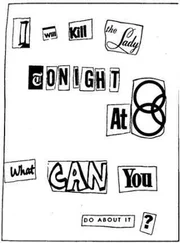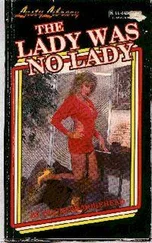He reached over to the portable alarm clock on the bed-side table and turned off the alarm. Recently, he felt, he had become a light sleeper—just like an old man. Why was this so? He presumed it was because of his nightlife, and particularly his experiences with women.
He got out of bed and, still in his pajamas, went into the bathroom. He followed the same routine every morning. He would take a fresh towel from the rack, dry his face and then crumple the towel like a paper ball and hurl it carelessly into the corner. Self-consciously, like an actor in an American film, he took a suit out of the closet and threw it onto the bed. Little by little he dressed: a well-starched shirt, a slim tie, tasteful and in solid colors; pearl cuff links. He dressed with his usual care. Today, having looked at himself in the mirror, he undid his tie and retied it, but otherwise it was his practiced routine; watching him, one knew that he was an habitué of hotel life.
On the luggage rack there was a blue suitcase covered with first-class stickers from the world’s best airlines and the most famous hotels in the United States. It was a very expensive case and his only luggage apart from another case in the closet.
In this hotel, he was known as a long-stay traveler. Even he thought of himself as a traveler. Once a week he would commute to Osaka for a short weekend, and this, too, was traveling. In Osaka he had a wife, Taneko, whom he had married whilst a postgraduate student in the United States. But after they got back to Japan, his wife said that she didn’t want to live in Tokyo, this despite the fact that she had been to college there and even had a small part in a professional drama there once. She said that she was happier staying in the parental home in Osaka, so Ichiro Honda spent his weekdays living in a hotel in Tokyo.
Taneko’s father was still in good health and continued as President of D Corporation, a top-ranking public company. His wealth had accustomed her to having her own way ever since she had been a child. Now she lived with him and a housekeeper in their large mansion in Ashiya, forcing Ichiro to travel to Osaka and back every weekend. However, she had become accustomed to this style of living, and it seemed to her to be the most natural form of existence. For his part, too, he had come to enjoy a double life where he could enjoy the advantages of a single man for much of the time. Whatever his wife got up to whilst he was away was of no concern to him; he was no more concerned, either, in how she endured her lonely life. Just a month ago, his wife had had a small studio built in a corner of the garden where, the housekeeper told him, she would withdraw for two or three days at a time. If this kept her happy, well, so much the better.
Just as he was not jealous of his wife, so Taneko affected no interest in whatever he did to pass the time in Tokyo. He always flew between the two cities, but he seemed to suffer most from emotional strain whilst he was in Osaka. On his return flights to Tokyo he always looked gloomy, which must in some way have been the fault of his wife. His plane would get into Haneda on Sunday evening. The other passengers would have the light step of people returning home, but not he; he looked more like someone walking in a cortege. He displayed duty and hesitation rather than pleasure. He would take a taxi to the hotel and sit slumped in the back without saying a word; Saturday nights were obviously an ordeal for him. As soon as he got back to the hotel he would go straight to bed—the one night of the week when he did so.
By nine sharp on Monday mornings he would be in his office, a private room on the sixth floor of the K Precision Machinery Company in the center of the business district. He occupied a fairly senior post as a computer specialist in this company. Just as gas companies send out staff to supervise the fitting of boilers and so forth, so he was sent out as a consultant to visit large companies, department stores, insurance companies, canning factories, and the like, advising the clients of the most effective way of solving their problems.
So during the eight hours between nine and five, Ichiro Honda led a blameless life, five days a week, plus the time of his visits to Osaka. As far as the world was concerned, he was a devoted husband and a serious worker. But for him, his real life was bounded by the hours of his freedom in Tokyo in the evenings. Ichiro Honda, the computer specialist married to a rich wife, vanished from the face of the earth in the evenings. At first he had drifted, lonely and bored, and had then taken to finding solace in the arms of women.
Every day, he would go back to his hotel straight after work, to wash, perhaps change, and have dinner: on one day meat, on the next fish, but always a bottle of Bordeaux to wash his meal down. Leaving the dining room, he would saunter into the lobby and read the evening papers, both in English and in Japanese. Some evenings he would enjoy a conversation with an Englishman who occasionally stayed in the same hotel. Honda prided himself on his ability to speak the Queen’s English. His favorite topics on these occasions were drama and literature.
At eight o’clock promptly, by which time it was always dark, he would pick up a taxi at the hotel entrance, and his evening would begin. But before getting into the car, he would stand and appreciatively sniff the aroma of Tokyo, which seemed to be compounded of darkness and neon; satisfied that night had indeed once again transformed the city, he would head for the town, for the places where the women awaited him.
His targets were never professional women; rather, they were the lonely and those others who pined for love. To hunt them down, he nightly patrolled music cafés, bars, dance halls, and even cinemas, but all of them away from the business or fashionable entertainment areas. Office girls, sales clerks, typists, beauticians… students, even. They all lay in wait for him along the walls of dance halls or seated in coffee shops and cinemas. They lay in wait, but they were his victims; all he had to do was to find them.
To him, women were no more than tinplate targets at a shooting gallery in a fair. The man pulls the trigger, the woman falls, but after all they are made of tinplate and will rise again. So he could go on shooting to his heart’s content.
Until such time as the target turned out not to be tin, and blood would be shed…
Ichiro Honda had a way with women. He had the faculty of penetrating their psychology at first meeting. Was the woman interested in the arts? Very well, he would be a musician or a painter. In time, he had been sailor, airline pilot, poet, bartender. To hear him in the last role explaining how to mix drinks was enough to make one feel thirsty. And as for his nationality, he had found it effective to represent himself as having come from somewhere outside Japan. His story was that he had been born in England, or Paris, or had spent his boyhood in Chicago. He didn’t have to go into much detail—the story itself was usually enough. As a child, his classmates had mocked his foreign looks, but his clean-cut, chiseled features now stood him in good stead.
He even had a British passport, already expired and abandoned by its owner, which he would flash around. It had taken him three days to change the photo and signature and correct the dates, but it was worth it. He was breaking no law; customs or immigration were never involved, just women. He would leave it, ostentatious in its navy blue cover with the gold coat of arms, on a bedside table or on the counter of a bar. Words were quite unnecessary—the woman only had to see it to believe.
Despite his use of such tactics, he was inside himself convinced that women were naturally his prey because of some innate gift, some supernatural sense, that he had been born with. Often he awoke with a premonition of what woman the day would bring him. He could not explain it—it was just there, a blend of the excitement of his mind and the inner rhythms of his body. These foretastes of the evening would occur to him during purely routine activities such as knotting his tie. Not even his work at the office could drive these thoughts from his mind; they lingered with him all day long, so that he felt as if his soul had left his body and was flying around somewhere over his head awaiting the dusk.
Читать дальше












